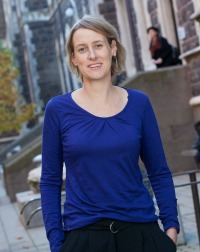About Dr. Bridgette Toy-Cronin - presenter New and Emerging Scholars Symposium
 Dr Bridgette Toy-Cronin is a Senior Lecturer and the director of the Legal Issues Centre based in the Faculty of Law University of Otago. The Legal Issues Centre researches access to justice issues with a focus on the civil justice system.
Dr Bridgette Toy-Cronin is a Senior Lecturer and the director of the Legal Issues Centre based in the Faculty of Law University of Otago. The Legal Issues Centre researches access to justice issues with a focus on the civil justice system.
Background
Bridgette holds a Bachelor of Arts and Bachelor of Laws with Honours from the University of Auckland. She graduated with a Master of Laws from Harvard Law School in 2005 where she was a Frank Knox Fellow. Her PhD from the University of Otago, examining litigation in person (self-represented litigants) in the New Zealand civil courts was awarded in 2015.
Bridgette has worked as an intern to the International Criminal Tribunal for Rwanda, as a High Court Judges' Clerk, and as a civil litigator in New Zealand and Australia. She also spent a year in Cambodia working for the Cambodian Defenders Project on Women's Rights.
Presentation at 2016 New and Emerging Scholars Symposium
Her presentation for the Symposium entitled “Sheltering in the Big Tent of New Legal Realism” discusses the role of applied empirical methods in finding solutions to current “real world” problems. She explores how various forms of empirical research, starting from the “bottom-up” rather than the usual focus of the appellate courts-down, can expand and complement doctrinal understandings of law.
Bridgette's presentation is based on experience gained through her doctoral research which sought to find out how civil litigants who represented themselves in Court fared.
Ongoing research interests
Bridgette is committed to social justice - wanting the legal system to be open and fair to all. Her research, present and future, like her PhD, will reflect that. She’s delighted to have been given the opportunity to lead an interdisciplinary research team and is particularly indebted to the Gama Foundation, who along with the University of Otago Foundation Trust, fund the Legal Issues Centre. Empirical research by its nature consumes time, people and money. It is neither a quick-fix nor a band-aid. Instead it probes the complex, often uncomfortable intersection between theory and practice to find its solutions.